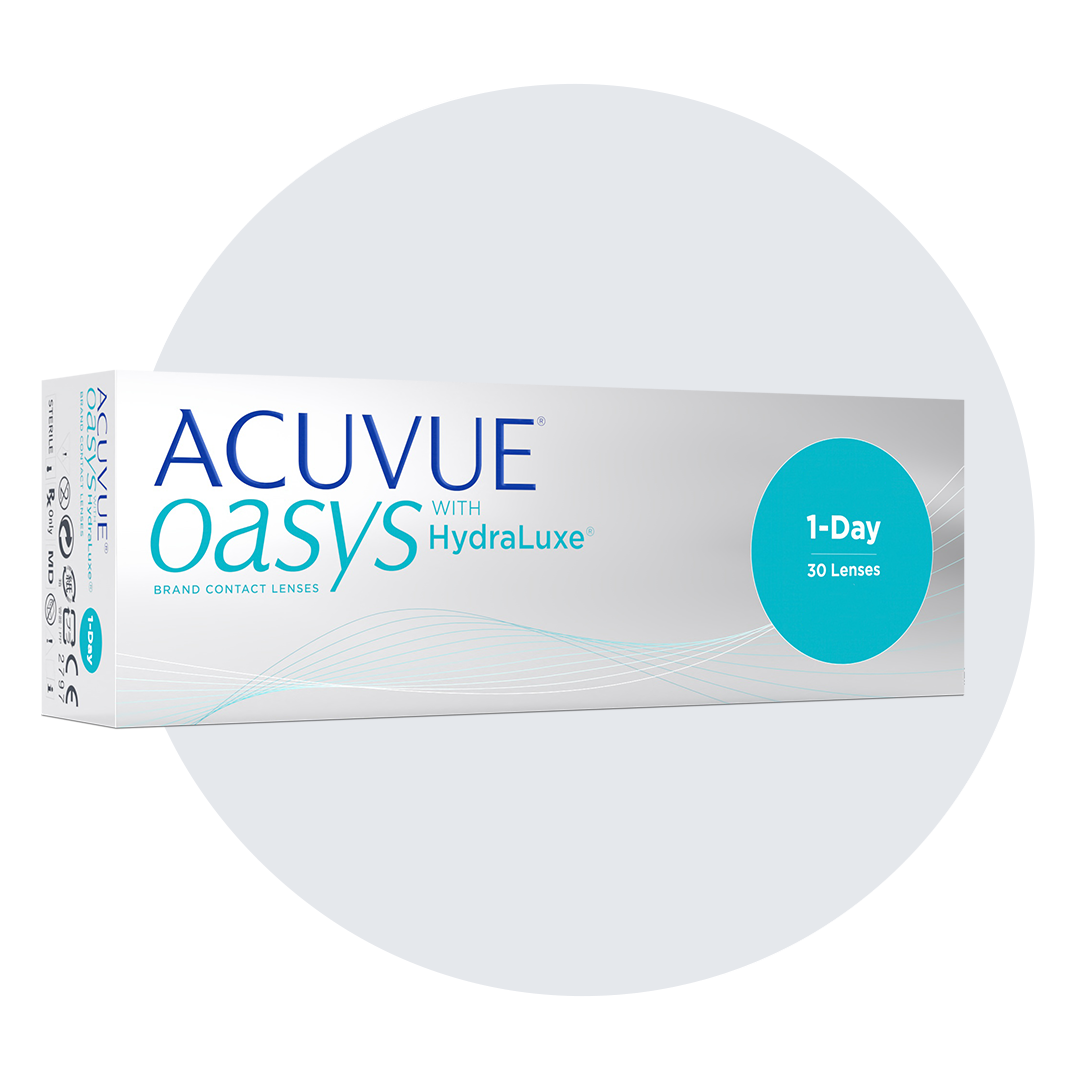+ClinicalTrials.gov is a website maintained by the NIH. The 22 clinical studies evaluated subjective comfort as a primary or secondary endpoint for ACUVUE® OASYS Brand 2-week family contact lenses vs. competitors’ products. Review conducted as of April 30, 2024.
*Free trial lenses available from participating care professionals. Exam and fitting fees not included.
#Helps protect against transmission of harmful UV radiation to the cornea and into the eye.
WARNING: UV-absorbing contact lenses are NOT substitutes for protective UV -absorbing eyewear such as UV-absorbing goggles or sunglasses because they do not completely cover the eye and surrounding area. You should continue to use UV -absorbing eyewear as directed. NOTE: Long-term exposure to UV radiation is one of the risk factors associated with cataracts. Exposure is based on a number of factors such as environmental conditions (altitude, geography, cloud cover) and personal factors (extent and nature of outdoor activities). UV-blocking contact lenses help provide protection against harmful UV radiation. However, clinical studies have not been done to demonstrate that wearing UV-blocking contact lenses reduces the risk of developing cataracts or other eye disorders. Consult your eye care practitioner for more information.
‡ Source Euromonitor International Limited; Eyewear 2024 edition; value sales at rsp, all retail channels, 2022 data; “Acuvue family of brands” represents aggregated sales of the following brands: 1-day Acuvue, Acuvue Oasys, Acuvue Advance, Acuvue, and Acuvue2
§Survey among 1,005 Eye Care Professionals in markets that represent over 70% of CL sales worldwide from the United States, United Kingdom, Japan, South Korea, China, France, and Germany conducted 11/2023 to 12/2023
Important information for contact lens wearers: ACUVUE Contact Lenses are available by prescription only for vision correction. An eye care professional will determine whether contact lenses are right for you. Although rare, serious eye problems can develop while wearing contact lenses. To help avoid these problems, follow the wear and replacement schedule and the lens care instructions provided by your eye care professional. Do not wear contact lenses if you have an eye infection, or experience eye discomfort, excessive tearing, vision changes, redness or other eye problems. If one of these conditions occurs, remove the lens and contact your eye care professional immediately. For more information on proper wear, care and safety, talk to your eye care professional or download the Patient Instruction Guides.
2024PP10030

